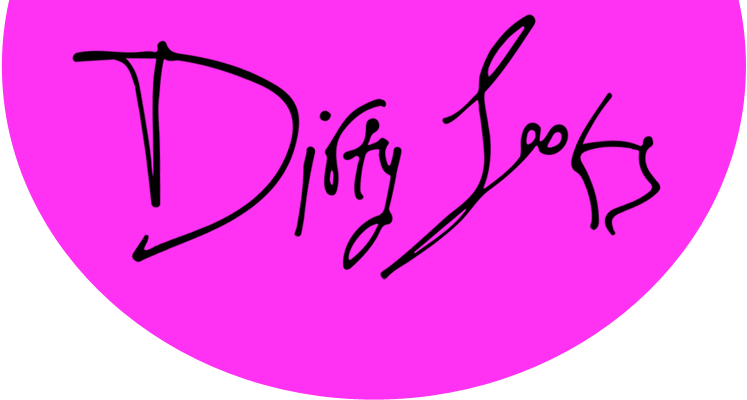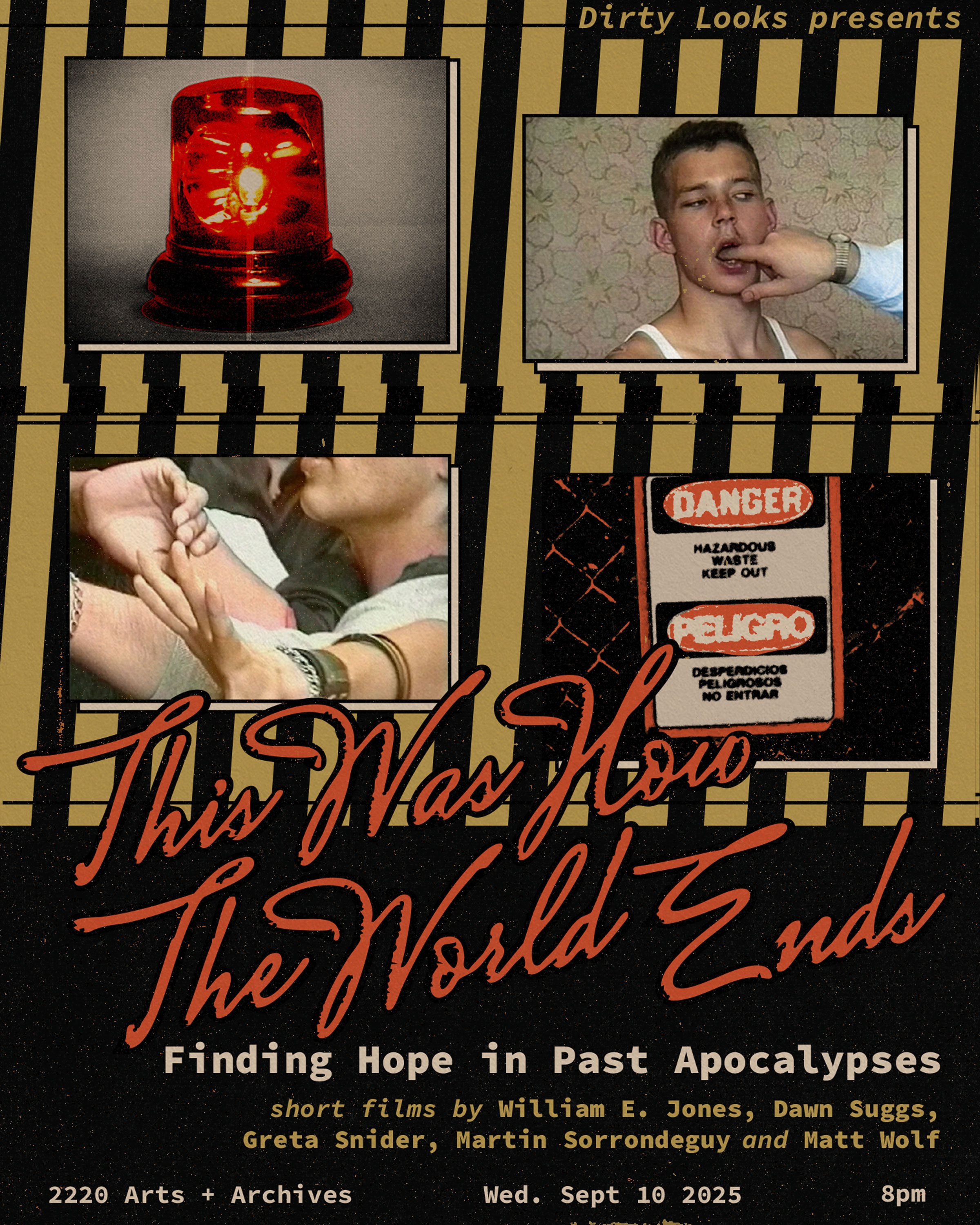2220 Beverly Blvd.
Los Angeles, CA 90057
The 90s felt like end times. Violence, virus, visibility. Yet, here we are in another doomsday. How can yesteryear arm us for future culture wars? This program of film and video explores how local doom riled up, enabled mourning or was embraced for fertile tomorrows.
Dawn Suggs, Chasing the Moon, 8mm on HD video, 4min., 1989/1991
Greta Snider, No-Zone, 16mm on HD video, 18min., 1993
Martin Sorrondeguy, Mas alla de los Gritos (Beyond the Screams): a Latino/Chicano hardcore punk documentary, video, 29min., 1999
William E. Jones, The Fall of Communism as Seen in Gay Pornography, video, 19min., 1998
Matt Wolf, I Feel Love, SD video, 15min., 2004
Dawn Suggs’ first circulating short is a fleeting rumination on the aftermath of street violence on a black lesbian New Yorker. Greta Snider’s No-Zone uses five means to our end in glorious handheld 16mm: toxic pollution, train hopping, AIDS, BMX biking, and Los Alamos doomsday hoarders. As Martin Sorrendeguy explains at the start of his Mas alla de los Gritos, “the Latino punk scene in [the early 90s] really exploded because we had a lot to sing about. What started to happen in the US pissed us off so much; we were feeling targeted and we were feeling cornered as a community, we began to write songs about it.” Re-editing from porn archives, William E. Jones charts political upheaval through set décor in Eastern European gay hardcore productions. The tug of the west arrives as an unwavering camera gaze, exploiting cheaper sex work and the goofy smiles of the boys who pout, pose and deliver the lines they think we want to hear in broken English. And Matt Wolf’s rarely-screened student film about Gianni Versace’s serial killer, Andrew Cunanan, tallies the human cost of media visibility in early queer representation.
Dawn Suggs has worked as a media artist from coast to coast, in Los Angeles, California, and as a journalist in St. Louis, Missouri. Her early short films, like Chasing the Moon (1989/91), I Never Danced the Way Girls were Supposed To (1992), She Left the Script Behind (1993) and Firefly (1996), were staples on the queer and experimental film festival circuit of the 1990s. She was an assistant director on Cauleen Smith’s recently restored 1998 feature film, Drylongso (1998). Suggs title appears courtesy of https://film.twn.org/
Greta Snider emerged as a filmmaker from the 1980s San Francisco DIY/punk scene with a vital and multi-layered perspective, examining the margins of society, identity, and experience. Alternative narratives, subcultures, and lifestyles are explored with great sensitivity, humor, and a genuinely fresh reorientation of vision that engages the audience on numerous emotional, intellectual, and visceral levels. Snider frequently works very materially with the film medium, whether through hand-processing, optical printing, or other tactile approaches. Often exploring difficult and complex concepts such as grief, trauma, sexuality, abortion, death, and pleasure, Snider’s activation of the film material creates an immersive and immediate space for her investigations to unfold. Despite the intensity of her themes, these films are extremely stimulating, deeply insightful, and... often incredibly fun. (bio courtesy of the Academy Museum of Motion Pictures)
Martin Sorrondeguy is a queer, Latinx punk. He sings for bands you may have heard of like LIMP WRIST and LOS CRUDOS, he runs the record label Lengua Armada, is a longtime shitworker for MRR, directed the 1999 punk classic film Beyond the Screams: A U.S. Latino Hardcore Punk Documentary, and is a top-notch photographer who has authored several books full of amazing photos he shot of bands from all over the world. Martin also happens to be a dedicated teacher who has been involved in radical education for decades, and puts as much passion into his classroom work as he is known for in punk. (bio courtesy of MAXIMUMROCKNROLL)
William E. Jones is an artist, filmmaker, and writer. He has made the experimental films Massillon (1991) and Finished (1997); videos including The Fall of Communism as Seen in Gay Pornography (1998), Shoot Don't Shoot (2012) and Psychic Driving (2014); the documentary Is It Really So Strange? (2004); and many other works, including the essay film Fall into Ruin (2017), about the Greek art dealer Alexander Iolas (1907-1987) and his abandoned house in Athens.
Matt Wolf directed the acclaimed two-part HBO film Pee-Wee as Himself (2025), about the artist and performer Paul Reubens, which premiered opening night of Sundance 2025, won a Gotham Award, and is nominated for 5 Primetime Emmy Awards, including Best Documentary and Best Director. His feature documentaries include Wild Combination (2009), about the cult cellist and disco producer Arthur Russell, Teenage (2013), about early youth culture and the birth of teenagers, Recorder (2019), about the activist Marion Stokes who secretly recorded television 24 hours a day for 30 years, and Spaceship Earth (2020), about Biosphere 2, a controversial experiment where 8 people lived quarantined inside a replica of the planet.













